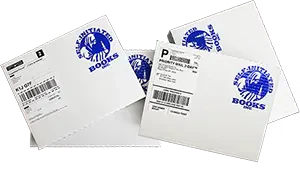
The Sun in the Church: Cathedrals as Solar Observatories
The Sun in the Church: Cathedrals as Solar Observatories
In stock
- Free Shipping USA
- International Delivery-Duty Paid*
Title: The Sun in the Church: Cathedrals as Solar Observatories
Contributor(s): John Lewis Heilbron (author)
ISBN: 9780674854338
Hardcover: 366 pages
Features: Illustrated, bibliography, index.
Dimensions: 25.4 x 18.16 x 3.63 cms; 978 g
Publisher: Harvard University Press (1999)
Condition: Discounted hardcover w/ curled dust jacket. (Out of print hardcover.)
- NEW - Unavailable
- DISCOUNTED
Couldn't load pickup availability
Through much of the Scientific Revolution, between 1650 and 1750, Catholic churches were the best solar observatories in the world. Constructed initially to solve the pressing problem of providing an unquestionable date for Easter, the instruments that made the churches' observatories also threw light on the disputed geometry of the solar system. Within sight of the altar, they subverted Church doctrine about mankind's place in the universe. Measurements made in the oldest cathedral observatory, San Petronio in Bologna, in the heart of the Papal States, supported Kepler's revolutionary discovery that neither the sun's orbit, nor the earth's, can be a circle, and thus indirectly favored ideas condemned at the trial of Galileo.
A tale of politically canny astronomers and cardinals with a taste for mathematics, The Sun in the Church explains the unlikely accomplishments of the Church-sponsored observers. It engagingly describes Galileo's political overreaching, his subsequent trial for heresy, and his slow and steady rehabilitation in the eyes of the Catholic Church. Despite the Church's prohibition against advocating sun-centered astronomy, Italian clerics managed to teach and advance it. Heilbron describes, with dry wit, the diplomatic discretion on all sides that allowed them to do so.
The functions of the Church observatories changed with the centuries. As they increased in number, citizens and cities set their clocks by them; at the beginning of the age of iron and steam, railroad schedules were governed by the sun's movements traced out on cathedral floors. The story of these observatory-chronometers and their visionary and eccentric builders is one of astronomy, Church history, and religious architecture; of complex measurements undertaken with limited mathematical tools but inspired determination; and above all, of the many niches, protected and financed by the Catholic Church, in which science and mathematics thrived.
Combining brilliant writing with deep learning, The Sun in the Church corrects long-held oversimplifications about the hostility between science and religion.

John Lewis Heilbron (1934-2023), was an American historian of science best known for his work in the history of physics and the history of astronomy. He was Professor of History and the Vice Chancellor at the University of California, Berkeley, Senior Research Fellow at Worcester College, University of Oxford, and visiting professor at Yale University and the California Institute of Technology. He edited the academic journal Historical Studies in the Physical and Biological Sciences for twenty-five years, and was awarded the George Sarton Medal by the History of Science Society in 1993 for his contributions to the field.
More from this publisher:

Packed for a Journey | Share







